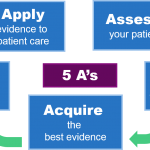Featuring the latest tool from Trials Tracker, record profits for Elsevier in 2017 and an introduction to the Open Science Training Handbook.
FDAAA Trials Tracker tool launched via FDAAA Trials Tracker
In the latest stage of the Trials Tracker project, a tool has been developed to identify research organizations that are not compliant with the 2007 Food and Drug Administration Amendments Act (FDAAA) requiring all clinical trial results to be reported within 1 year of study completion, which became effective this month. The tool identifies results that have not yet been reported and calculates the fines owed to the federal government.
Can we trust prestigious science journals? via Frontiers in Human Neuroscience
Impact factor (IF), a commonly used measure of scholarly achievement, is often criticized for its inaccuracy. Most researchers nevertheless assume that high-IF journals weed out articles with unsound methodology or unfounded conclusions as part of their review process. This paper suggests, however, that high-IF journals have higher retraction rates, more pronounced signs of prevalent p-hacking and worse experimental design than those with lower IF, and may therefore be less reliable. It is worth noting that this study focuses specifically on psychology journals, but it suggests that a broader evaluation of high-IF journals in other fields may be warranted
Elsevier reports record profits via Times Higher Education
Elsevier’s financial results, released last week, show staggering profits of £913 million in 2017 – £60 million more than in 2016 – and a 37% profit margin. Although the report suggests that open access is a principal risk to the future profitability of the company, there is no evidence of diminishing profits so far; shareholders received dividends of £762 million in 2017. Anger among research institutions about Elsevier’s publishing policies and rising prices flared last year, and the release of these financial results is likely to increase their unrest.
Give your thoughts on the Open Science Training Handbook! via AIMS
The Open Science Training Handbook has been developed to help researchers to navigate the large and often confusing open-science landscape. The resource covers learning and training, organizational considerations and the basics of open science, and includes examples and practical guidance, and a glossary. The handbook is open for comments until 4 March 2018 for anyone interested in contributing.
Elsevier–Hypothesis collaboration announced via Hypothes.is
The calls for easier commenting on published research after peer review has been growing in recent years. Non-profit organization Hypothesis was set up to address the issue by providing a platform that allows open annotation of research articles by multiple users, open annotation of research articles. The collaboration announced this week with publishing giant Elsevier will expand the purview of open annotation to hundreds of new journals.






